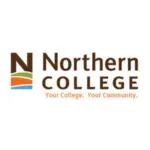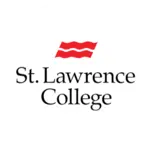Study in Bulgaria

Overview
Bulgaria is becoming a popular choice for overseas students looking for reasonably priced, high-quality education. Known for its rich cultural legacy and inviting environment, Bulgaria provides a diverse selection of programs in sectors such as medicine, engineering, business, and arts. Students benefit from state-of-the-art facilities, knowledgeable teachers, and affordable living expenses, and their degrees are recognized throughout Europe and beyond. Studying in Bulgaria provides both academic advancement and a dynamic European experience.
Why Study in Bulgaria?
Chance to Earn Dual Degrees through Partner Institutions
Flexible and Student-Friendly Admission Process
Affordable Tuition Fees Compared to Other European Nations
High-Quality Education and Excellent Living Standards
Globally Recognized Qualifications
Universities















The Bulgarian education system is well-organized and adheres to the European Higher Education Area (EHEA) standards, guaranteeing globally accepted qualifications. Bulgarian universities and colleges provide a wide range of English-language programs that place a strong focus on practical knowledge and global relevance. The country invites international students with low tuition prices and sophisticated learning surroundings. The major intakes for Bulgarian universities usually take place in September and February, offering flexibility for new admissions.
Most colleges accept a TOEFL score of 70 or an IELTS score of 6.5. Students who want to enroll in Bulgarian-taught programs must demonstrate their language skills by receiving a B2 level certification from the Standard Test of Bulgarian as a Foreign Language.
Do you have Questions ?
Find answers to common queries about our services, processes, and policies. If you need further assistance, feel free to reach out.
1.What are the main intakes to Bulgarian universities?
The main admissions for Bulgarian universities are in September and February, which provides international students with more flexibility.
2. What are the language requirements for studying in Bulgaria?
When applying to programs taught in English, students typically need to have a TOEFL score of 70 or an IELTS score of 6.5. For Bulgarian-taught programs, a B2 level STBFL certificate is needed.
3. Are degrees from Bulgaria accepted worldwide?
Degrees from Bulgarian universities are widely recognized in Europe and around the world.
4.Can overseas students afford to study in Bulgaria?
Bulgaria has lower tuition fees and living costs than other European countries, making it an economical study location.
5.Is it possible for foreign students to work while studying in Bulgaria?
Part-time employment while studying is permitted for international students, subject to restrictions imposed by Bulgarian immigration rules.
6.Which programs are most popular with Bulgarian international students?
Medicine, Engineering, Business, and Arts are particularly popular among overseas students due to the country’s high academic offerings.
